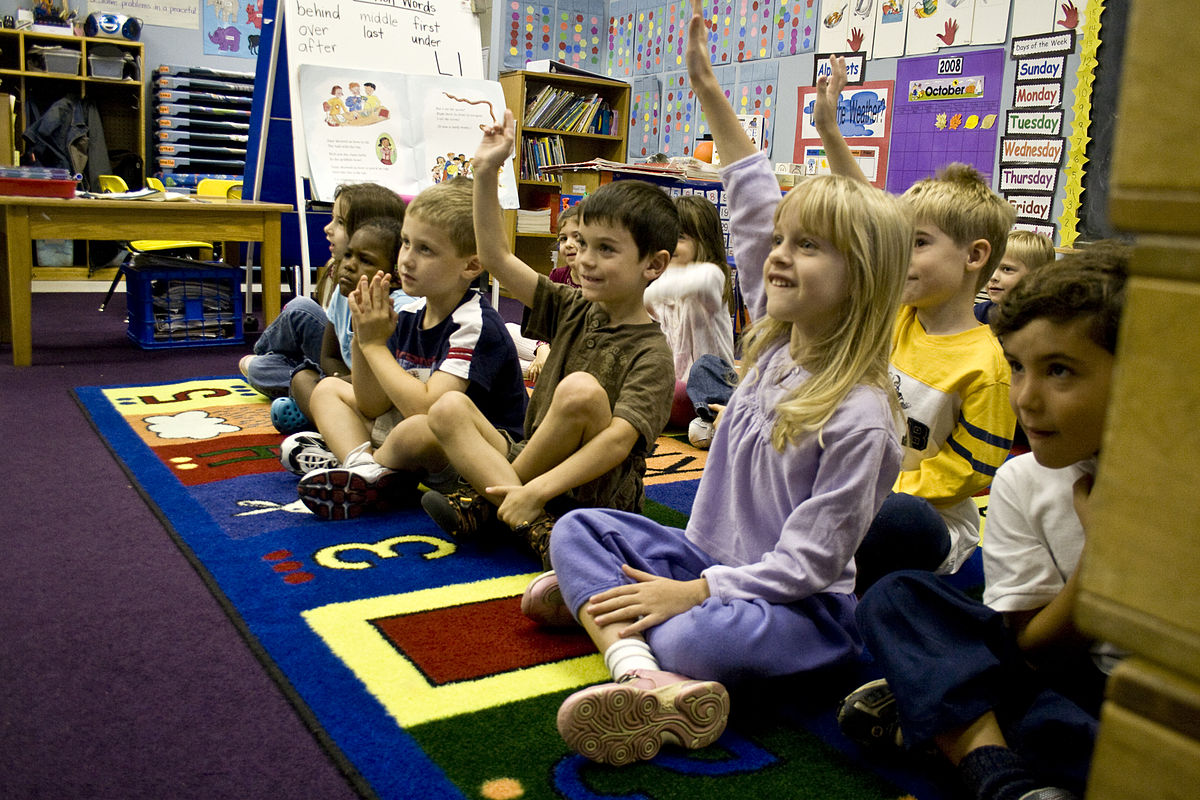Hands-on outdoor science experiments for Grade School students
Understanding Elementary School: Trick Truths and Exciting Activities for Every Pupil
Quality college offers as a vital structure for trainees, mixing academic learning with the growth of social abilities. This period is necessary for promoting emotional knowledge and strength. Involving tasks can enhance interest and inspiration, however the challenge lies in finding the ideal equilibrium. As instructors and parents navigate this landscape, understanding the complex nature of elementary school comes to be essential. What strategies can successfully sustain students in this transformative stage?
The Importance of Social Abilities in Quality College
Scholastic understanding is crucial, social skills play a vital duty in quality school growth. During these formative years, kids find out to engage with their peers, work out problems, and construct friendships. Social skills encompass a range of expertises, including efficient interaction, compassion, and team effort. These capabilities enable pupils to navigate the intricacies of social characteristics within the class and beyond.
As kids involve in team activities and collaborative tasks, they establish vital interpersonal skills that add to their emotional knowledge. This fundamental knowledge cultivates a sense of belonging and boosts overall well-being. Furthermore, youngsters that have strong social skills tend to experience better academic end results, as they are a lot more likely to take part actively in discussions and seek help when required.

Fundamentally, the farming of social abilities during grade college is not just advantageous however critical for cultivating a well-rounded person prepared for future difficulties.
Balancing Academics and Creative Thinking
As students progress with elementary school, balancing academics with creativity comes to be crucial to their total development. This balance promotes crucial reasoning, problem-solving, and technology, skills necessary for future success. Academic subjects supply fundamental expertise, while imaginative tasks urge students to express themselves and discover new concepts.
Integrating imagination right into the curriculum can enhance engagement and inspiration, permitting trainees to get in touch with the material on a deeper level (Private School). Jobs that blend topics, such as art and scientific research, can boost inquisitiveness and promote a love for discovering
Imaginative electrical outlets like songs, drama, and visual arts assist students establish emotional intelligence and durability. These experiences add to a well-rounded education and learning, preparing pupils for a swiftly altering globe.
Eventually, prioritizing both academics and creative thinking equips pupils with a varied ability set, enabling them to browse obstacles and take opportunities efficiently throughout their instructional journey and beyond.
Engaging Tasks to Improve Knowing
Various engaging tasks can greatly improve learning experiences for elementary school trainees. These activities not only make finding out pleasurable but likewise help reinforce vital principles. Hands-on experiments in scientific research classes enable pupils to explore concepts practically, fostering interest and much deeper understanding. In a similar way, interactive narration sessions can enhance proficiency skills while stimulating imagination and imagination.
Team tasks motivate cooperation, teaching students the value of team effort and communication. Integrating innovation, such as instructional games and digital tests, can likewise mesmerize pupils' focus and make learning even more vibrant. Arts and crafts tasks can assist in the advancement of fine motor skills while supplying an imaginative electrical outlet.
Additionally, outside tasks, like nature walks or scavenger hunts, connect trainees with the atmosphere and advertise physical wellness. By incorporating these interesting activities into the curriculum, instructors can develop a promoting learning ambience that accommodates varied knowing styles and maintains students motivated.
The Role of Parental Support in Education
Parental support plays a considerable role in the academic journey of elementary school pupils. Research suggests that when moms and dads proactively take part in their kid's education, it positively influences academic efficiency, inspiration, and total health. Grade School. Consistent participation, whether with research help or participating in institution occasions, cultivates a complacency and enhances the value of education
Additionally, reliable communication between teachers and parents improves the learning experience. Parents that work together with teachers can better recognize their kid's challenges and staminas, enabling customized assistance. This partnership urges accountability and establishes high expectations for pupils.
Furthermore, parental attitudes towards education substantially influence children's perspectives. It cultivates interest and strength in their kids when parents demonstrate a positive expectation on knowing. Ultimately, the foundation of adult assistance is essential fit pupils' mindsets, habits, and academic success throughout their quality institution years.
Building a Favorable Understanding Atmosphere
Creating a favorable discovering atmosphere is necessary for promoting scholastic success and psychological wellness among elementary school pupils. Such a setting promotes engagement, motivates partnership, and enhances inspiration. Educators play a substantial function in developing this ambience by applying techniques that focus on respect, inclusivity, and support.
Classroom administration techniques, such as clear assumptions and constructive responses, are essential in supporting a feeling of security. Furthermore, including varied training techniques can satisfy different learning styles, making certain that all pupils really feel valued.
Urging peer communications and group activities likewise cultivates social abilities and a sense of community. Commemorating achievements, regardless of exactly how tiny, reinforces favorable habits and enhances self-confidence.
Inevitably, a positive learning environment not just enhances academic efficiency yet additionally promotes psychological resilience, aiding students prosper both inside and outside the classroom. This structure is substantial for their overall development and long-lasting discovering journey.
Techniques for Establishing Critical Thinking Abilities
Efficient techniques for establishing essential believing abilities in elementary school include motivating inquiry-based discovering and advertising analytical tasks. Inquiry-based learning cultivates inquisitiveness and permits pupils to discover concerns, while analytic activities test them to apply their understanding in sensible scenarios. With each other, these techniques improve trainees' capability to think seriously and independently.
Urging Inquiry-Based Learning
Just how can teachers cultivate a classroom setting that advertises inquiry-based discovering? Educators can create an ambience that motivates interest by look at this website presenting open-ended questions and facilitating conversations that prompt students to discover numerous perspectives. Motivating pupils to ask their own webpage concerns can even more stimulate their crucial reasoning abilities. Integrating hands-on activities and real-world issues permits trainees to involve directly with the material, cultivating much deeper understanding. In addition, supplying possibilities for joint tasks can enhance peer-to-peer understanding, where trainees share understandings and develop on each various other's concepts. By incorporating modern technology and resources that support expedition, teachers can assist trainees take possession of their learning trip, consequently cultivating a frame of mind of inquiry that extends past the class.
Promoting Problem-Solving Activities
While fostering analytic activities in the class, teachers can significantly improve trainees' crucial reasoning abilities. By incorporating hands-on projects, seminar, and real-world situations, instructors motivate trainees to assess scenarios, recognize patterns, and discover several options. Engaging pupils in joint challenges not only advertises team effort but likewise improves their capability to articulate thinking and warrant their selections. Furthermore, incorporating innovation via coding simulations or exercises can stimulate imaginative problem-solving techniques. Examining students' idea processes through reflective methods enables deeper understanding and renovation. In general, advertising problem-solving activities grows a setting where vital thinking prospers, furnishing students with crucial abilities for future academic and life difficulties. These methods inevitably prepare learners to navigate complex concerns with confidence and development.

Regularly Asked Questions
What Age Do Children Commonly Begin Elementary School?
Kids usually start elementary school at around age 6. This age can differ somewhat depending upon local academic policies and private preparedness, but 6 years old is one of the most typical beginning point for formal Web Site education.
How Can I Assist My Child With Homework?
To help with homework, moms and dads can develop a structured atmosphere, develop a regular, urge questions, give resources, and use assistance without giving direct answers, fostering freedom and critical reasoning in their child's understanding procedure.
What Are Typical Quality Institution Knowing Difficulties?
Common grade college finding out challenges include difficulties with reviewing understanding, math ideas, focus span, and social skills. These barriers can affect academic performance and call for tailored support to help pupils accomplish their complete capacity.
Exactly How Can Parents Communicate Efficiently With Teachers?
Reliable interaction between moms and dads and teachers can be achieved through regular updates, open discussions, set up conferences, and active listening. Developing a collaborative connection cultivates understanding and sustains the youngster's academic journey favorably.
What After-school Activities Are Available in Quality School?
Grade colleges typically provide a selection of after-school activities, consisting of sports teams, songs and art programs, dramatization clubs, and academic competitors. These tasks enhance social abilities, foster team effort, and encourage imagination amongst pupils outside the classroom.

Grade institution serves as a vital structure for trainees, mixing scholastic learning with the development of social abilities. Numerous interesting activities can substantially enhance discovering experiences for quality college students. Developing a positive learning environment is essential for cultivating scholastic success and psychological well-being among grade college students. Inquiry-based understanding cultivates curiosity and permits trainees to check out questions, while analytic tasks test them to use their understanding in practical scenarios. While fostering analytic tasks in the class, educators can substantially enhance pupils' critical thinking skills.